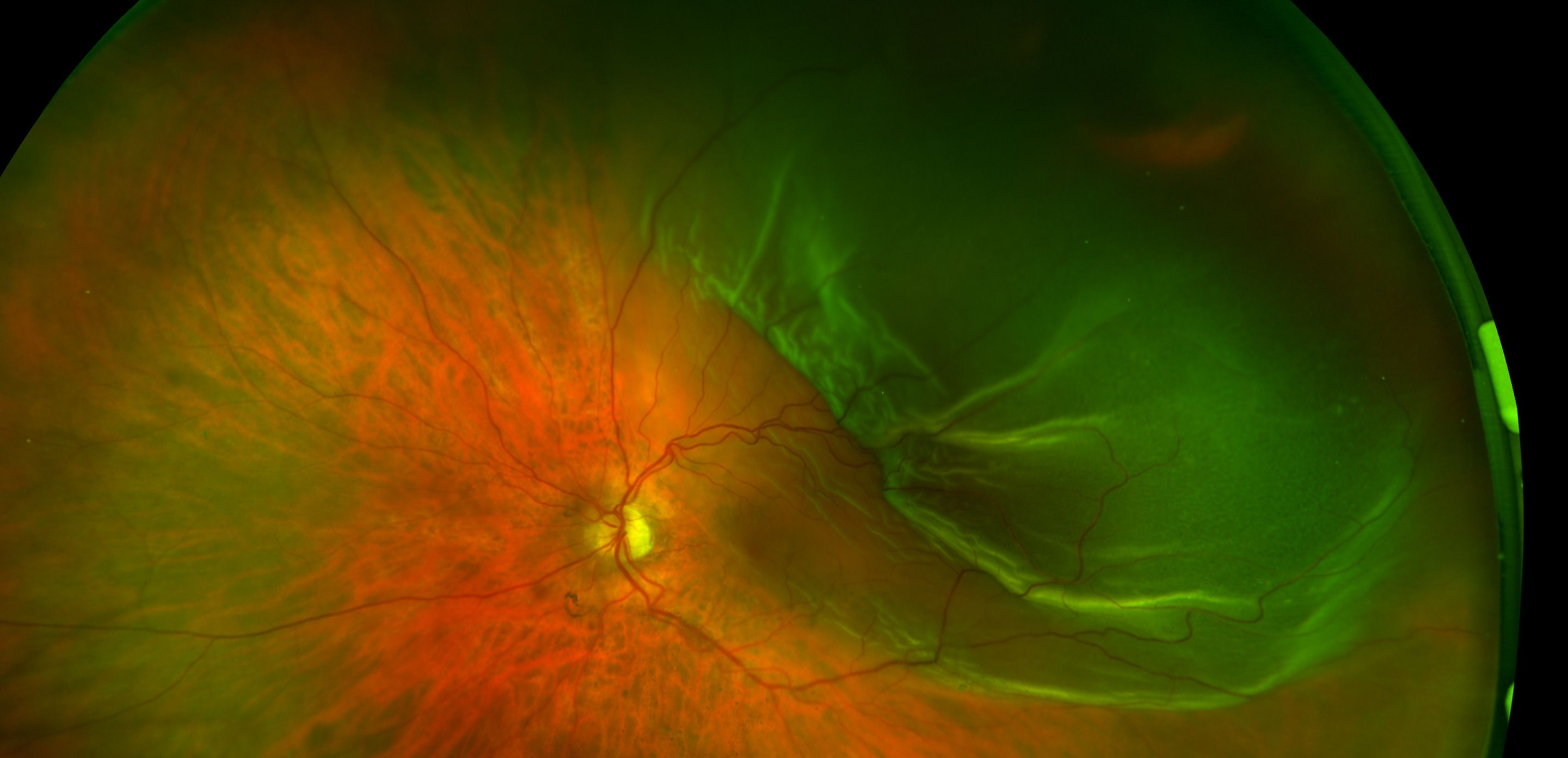Following a recent talk by Dr Burns, Optometrist from the RVH we have rewritten our guidance sheet for Flashes and Floaters and what to do if you notice any.
The majority of people with flashes and floaters will have nothing wrong with their eyes - however 10 to 20% may have a retinal tear or detachment or need reviewed at the Belfast Eye Casualty. This is a serious eye condition that can be managed if detected early enough and treated quickly.
It is essential that you act promptly and phone your local practice as soon as possible - if they are closed, phone another of our branches or another local optometrist in your area. You cannot contact Eye Casualty directly - you need to have a referral from an optometrist or sometimes your GP.
Flashes and floaters
Tiny spots, lines, flashes or shapes in your vision are known as flashes and floaters. Lots of people experience them and they usually aren’t cause for alarm. Below we explain what causes flashes and floaters and when you should be concerned.
What are flashes?
As we age, the jelly inside your eye shrinks a little and tugs on the retina (the light-sensitive layer) at the back of your eye. This can cause flashes of light at the edge of your vision. This is different from the disturbance of vision that can happen with a migraine.
What are floaters?
Often, people who have healthy eyes see floaters. They appear as spots, lines or cobweb effects, usually when you look at a plain surface such as a white wall, screen or a clear blue sky. They are usually caused by cells clumping together in the clear jelly (vitreous) in the main part of your eye and casting shadows on your retina – the light-sensitive layer of the eye. The sudden appearance of new floaters is different and although may be caused by the jelly shrinking, they can sometimes mean there is a tear in the retina.
When should I be concerned?
If you suddenly notice a shower of new floaters, or floaters along with flashes or a dark shadow or a ‘curtain’ in your vision, these symptoms can mean that the retina is tearing. If you notice any of these symptoms, you need prompt advice and attention. You should contact your optometrist as soon as possible (urgently). This examination should normally be covered free of charge under the NIPEARS scheme.
WE WILL HAVE TO DILATE BOTH OF YOUR EYES AT THIS APPOINTMENT - YOU WILL NOT BE ABLE TO DRIVE FOR A NUMBER OF HOURS AFTERWARDS!!
What will happen if the retina tears?
The retina is the light-sensitive layer at the back of your eye which receives images and sends them to your brain. If the retina tears, it may come away from the back of the eye and can lead to a retinal detachment which can result in you losing part or all of your vision.
If we discover a retinal tear or detachment, we will refer you by CCG to the Regional Acute Eye Service (Belfast Eye Casualty) at the Royal Victoria Hospital. They will phone you to make an appointment.
It is very important to TOTALLY REST until your appointment time.
PLEASE NOTE THAT EYE CASUALTY WILL DILATE BOTH EYES WITH STRONGER DROPS - YOU WON’T BE ABLE TO DRIVE ALL DAY. PLEASE USE A TAXI, BUS OR HAVE A FELLOW DRIVER.
Your appointment time at Eye Casualty is your time for triage - you will likely be there for a number of hours - cases are taken after triage on a priority basis. Please take snacks and entertainment.
How is retinal detachment treated?
If Eye Casualty discovers a tear, it will normally be treated on the same day by using a laser. However, if your retina has become detached, you will need surgery which may be up to a few days later. The Registrar or Consultant will advise you of the options and nature of any surgery.

If we don’t discover a retinal tear or detachment...
Most people (over 80%) do not have a tear or detachment and we will discharge you. They often have had a PVD (Posterior Vitreous Detachment) where the jelly/ vitreous shrinks and pulls away without a tear in the retina. Expect your current floaters to continue for weeks and probably months before settling down.
However we strongly advise you to look out for the following:
Any change in your flashes or floaters, especially if getting worse or more frequent.
A black shadow in your vision.
A sudden cloud of spots.
A curtain or veil over your vision.
Any change in vision. If you notice any of these, contact your optometrist again urgently.
Please note that Eye Casualty will not see you unless you have been referred by an Optometrist or sometimes your GP. Do not go to regular A&E. If we are closed, please try and contact one of our other practices or phone another Optometrist in your area.
RETINAL DETACHMENTS CAN LEAD TO BLINDNESS IF NOT TREATED ASAP - DON’T DELAY !
Stay Up To Date With The Latest News
Be informed about our exclusive sales and top deals.